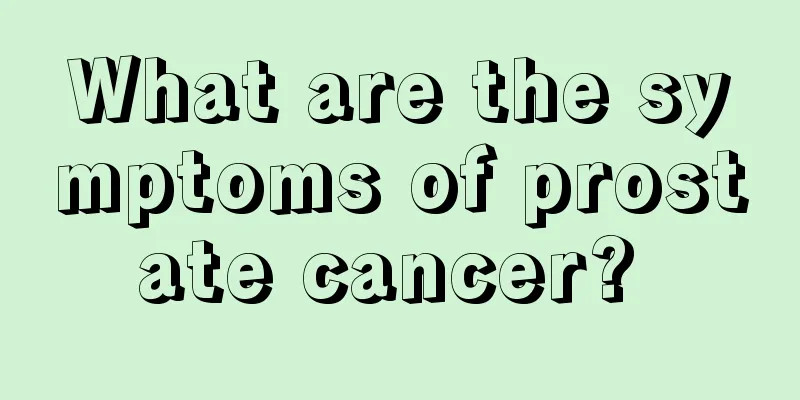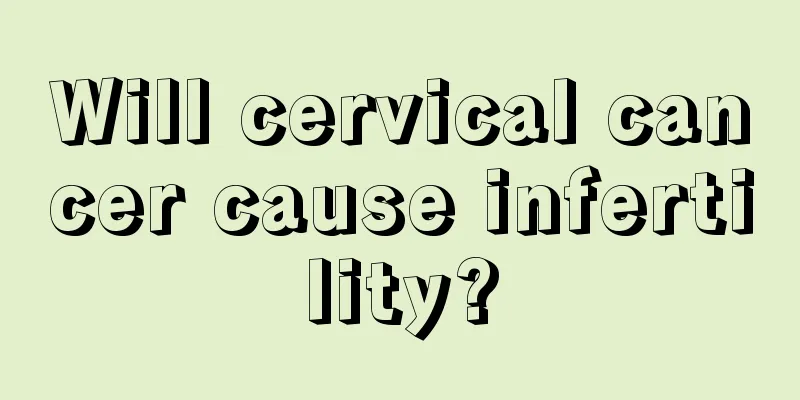How to effectively treat testicular cancer

|
Testicular cancer is a tumor disease that occurs in the testicular tissue of the male genitals. Most of them are malignant and can easily lead to male infertility. Once a male friend has testicular cancer, he should actively cooperate with the treatment. I believe that many patients are more concerned about how to effectively treat testicular cancer. Let's take a look at how to effectively treat testicular cancer. Common and effective treatments for testicular cancer include the following: 1. Chemotherapy for testicular cancer Chemotherapy is a method of killing cancer cells throughout the body with anticancer drugs. Chemotherapy is often used after surgery to kill any cancer cells that remain after surgery. This method is called adjuvant therapy. Chemotherapy can also be used as the first treatment if the cancer is in an advanced stage. Most anticancer drugs are given by injection directly into a vein. 2. Radiation therapy for testicular cancer Radiation therapy uses high-energy rays to kill cancer cells and shrink the tumor. Radiation therapy is a local treatment that affects only cancer cells in the area being treated. To treat testicular cancer, doctors use an accelerator outside the patient's body to send high-energy rays to the lymph nodes in the abdomen. Spermatogonia are very sensitive to radiation. Non-spermatogonia are not sensitive to radiation, so radiation therapy is not usually used for non-spermatogonia. Radiation therapy should be used after orchiectomy. How can testicular cancer be cured faster? Radiation therapy affects not only cancer cells, but also normal cells. The side effects of radiation therapy usually depend on the dose of treatment. Common side effects include fatigue, skin changes in the treated area, nausea, and diarrhea. Radiation therapy can affect the patient's sperm production, and most patients will still be fertile within 1 to 2 years. 3. Surgery for testicular cancer The procedure of removing part of a testicle through the groin is called a terminal inguinal orchiectomy. Men who undergo this treatment may worry that removing one testicle will affect their sexual ability and may cause infertility. However, men with only one healthy testicle can still have normal erections and produce sperm. Therefore, surgical removal of one testicle will not make a man impotent or infertile. In addition, during the operation, the doctor can place an artificial testicle in the scrotum. This artificial testicle weighs and feels like a normal testicle, and people who don't know it can't tell the difference between an artificial testicle and a natural testicle by appearance. Some lymph nodes deep in the abdomen are also removed. This surgery will not affect the man's ability to have erections and orgasms, but it can cause infertility because it may prevent ejaculation. |
<<: What sequelae will be left after the removal of a pituitary tumor?
>>: What are the treatment measures for testicular cancer
Recommend
How does the hospital treat glioma
How do hospitals treat gliomas? The onset of glio...
Medication for fungal infection
Because of previous inflammatory infections or ot...
How long can you live with ascites from gastric cancer
Gastric cancer is a disease that is difficult to ...
What is the reason for black and purple lips? It turns out to be related to these two causes
Under normal circumstances, people's lips are...
When is the best time to open windows for ventilation?
In real life, the air in many indoor places is qu...
What to do if Qi and blood are not flowing smoothly? Just turn on a few "blood activation switches" and it will be done
There is a folk saying that "if the qi and b...
Things you can't eat for kidney stones
The formation of kidney stones has a lot to do wi...
Can a four month old baby be held upright?
As we all know, the bones of a newborn baby are r...
What to pay attention to before blood sugar test
Blood sugar testing is very necessary, whether it...
What is the reason for yellow sweat?
The occurrence of sweat is a normal physiological...
Celery Freezing Tips
Celery is a very spice-rich ingredient and natura...
My throat is very dry and drinking water doesn't help
We all know that water is very important to us. A...
How to care for liver cancer in the late stage? Pay attention to these aspects when caring for liver cancer in the late stage
How to care for advanced liver cancer? Diet care ...
What are the dietary health care measures for lung cancer patients? Several methods of dietary health care for lung cancer patients
For a disease like lung cancer, which is very let...
Can tachycardia be cured
Tachycardia is a relatively common problem. This ...









